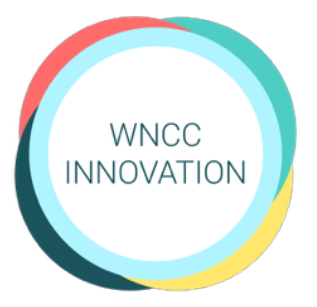Innovation Glossary

Tell us you're out there! We are building a database of WNCC Innovators to help to foster community among those who are re-thinking what ministry could look like. Tell us about yourself and the ministry you're running.
A glossary
for WNCC Innovation Initiative (founded 2019)
Ministry Incubators
Defining innovation:
Ask ten people to define innovation, and you’ll get twenty different answers. The Latin word innovare means to introduce something new, to create change. Generally innovation means putting together things that exist in a new way that is useful and valuable for everybody involved. If creativity is thinking of something new, innovation is implementing it in a way people value. If invention means making something that has never existed before, innovation uses what already exists—in new and valuable ways.
When we use the term “innovation,” the key is value: does the venture create value that wasn’t there before? If someone has an idea to improve an existing program, or adapts it for a new audience, or reimagines a potluck dinner as a tater tot festival, it might be an improvement but it’s not an innovation. If something is wildly new but it doesn’t improve people’s lives, it might be imaginative but it’s not innovative.
Christians never innovate for the sake of innovating. Nor do we merely tweak what we already do to make it somewhat better. We innovate to exponentially improve someone’s life. God brought life out of death—this is the kind of value we’re talking about! Of course, we can’t match God. For Christians, God is true innovator, creating heaven and earth, filling unlikely messengers with God’s message of hope, pouring the divine self into human form, and of course raising the dead. Christian innovation merely builds on this divine template.
In short, our job is not to innovate, but to love—and innovation is how we do that. Innovation helps us find new ways to heal the world, new sources of light in the darkness, new ways to sing God’s song in a world that has forgotten the words.
Here are some words you’ll encounter in our work together:
Imagination
Envisioning what doesn’t exist
Church
This could be a whole dissertation. Since we’re primarily working with local expressions of church, we’ll go with the United Methodist Book of Discipline’s definition:
“The local church is a community of true believers under the Lordship of Christ. It is the redemptive fellowship in which the Word of God is preached by persons divinely called and the sacraments are duly administered according to Christ’s own appointment. Under the discipline of the Holy Spirit, the church exists to maintain worship, edify believers, and redeem the world.”
It’s worth noting that this definition doesn’t limit “church” to what happens on Sunday mornings in a church building.
Creativity
Applying imagination to address a challenge
Innovation
Applying creativity to generate unique solutions
Emerging leaders
Lay and ordained people who show potential for creative leadership in their communities, or are in the beginning stages of leading a creative initiative, especially those in the early stages of a formal or informal ministry
Entrepreneurship
To bring those unique solutions to people who will value them.[1] The French word entreprendre means “to undertake” (entre [between] + prendre [to take])—so entrepreneurship is an undertaking “in between.” It fills in gaps between what already exists.
Intrapreneurship
To bring unique solutions to people who will value them inside your organization (you don’t have to start over to innovate). A lot of Christian entrepreneurship is technically “intrapreneurship”—it happens inside existing churches and organizations, to benefit those who belong to those organizations.
Improvement
Taking what already exists and adapting it to make it slightly better; tweaking. Improvement produces change more gradually than innovation.
Pivot
The central point around which something turns. Think basketball: a pivot is when you keep one foot in place while moving the other foot to reposition yourself. In social enterprise, a pivot means maintaining your basic purpose but shifting how you accomplish it.
System building (for existing ministries)
System building attends to the interconnected infrastructure of existing ministries—the systems that must be in place for ministry to be executed, whether we notice them or not. Sometimes the innovation that provides the most value is not a new ministry or product, but a new way of imagining a system that delivers the ministry (think “one click” shopping on Amazon).
Sustainable ministry
Ministry that generates enough resources to be ongoing. Those resources are financial as well as spiritual and relational. You can’t have a sustainable ministry if it generates a ton of revenue but burns out the volunteers.
Young adult
For the purposes of the WNCC Innovation Initiative, a young adult is generally between the ages of 18–35. This obviously encompasses an enormous range of people whose lives can be wildly different. Developmental psychologists often say young adulthood is when people make three decisions: to whom do I belong? what work am I here to do? what gives meaning to my life? Of course, how these decisions are made varies between individuals, and differ according to cultural context. So your congregation may define “young adult” differently based on the norms of your community. Totally fine.
[1] Tina Seelig, InGenius: A Crash Course in Creativity (San Francisco: HarperOne), 2011.
